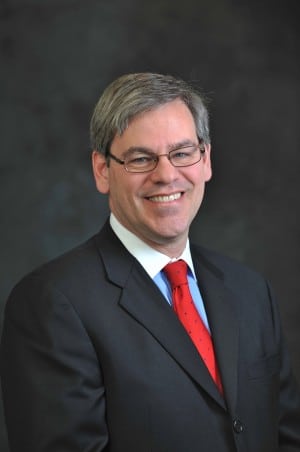Joseph Casey
Title: President, HarborOne Bank
Age: 57
Experience: 34 years in financial services
Joseph Casey grew up in Chelsea and has worked at small financial institutions all over the state. Named president of Brockton-based HarborOne Bank earlier this year, he has an intimate knowledge of community banking. But since he’s worked at HarborOne for more than a decade, he also has experienced working at a credit union – in 2013, what was then HarborOne Credit Union converted to HarborOne Bank to expand its services to its customers. Two years later the bank acquired Manchester, New Hampshire-based Merrimack Mortgage. Casey said he has loved serving the residents of the cities he has worked in and finds the culture at HarborOne Bank no different than what it was at HarborOne Credit Union – albeit with a few differences in the regulatory environment.
Q: What do you like most about community banking and working at smaller financial institutions?
A: I grew up in Chelsea, so I was an inner-city kid from the get-go. My banking career after my public accounting career took me to the North Shore, originally servicing Lawrence, Lowell and Haverhill. I have always been deeply involved in inner-city, low- to moderate-income communities. I am on the boards of both the Metro South Chamber of Commerce and the Old Colony YMCA, and my children have also been involved in nonprofit organizations.
I have a passion for trying to help communities get stronger for the future. We look for ways we can make lives easier by providing the right services. When I interviewed for the job at HarborOne, I quickly learned the CEO was deeply committed to helping with the revitalization of Brockton. Our employees not only like their day jobs, they like to volunteer as well. Our employees have volunteered more than 5,000 hours over the last couple of years. We have developed a bit of reputation of giving back to community and educating customers and non-customers alike.
Q: What do you like about the market you are in?
A: Most of my career was in the northern part of the state. In my mind there is a distinct difference because the North Shore seems to have less competition. There are many smaller mutual banks and credit unions in the south. That gets my competitive fires burning. I participated in lots of sports growing up so I’m a competitor at heart. It’s motivated me to excel above anything else.
Q: Are there any differences between the culture at a credit union and community bank?
A: I would say at least for me there is virtually no difference. Everything is the same at HarborOne. The main difference is at the corporate level and managing the different regulatory requirements. Our culture has always been to serve our customers. That shouldn’t change because we changed the name on the sign.
Q: There’s a bit of push and pull between banks and credit unions. Given your experience, what do you think the different capabilities and regulations of credit unions and banks should be?
A: To me, that is really up to each institution and their board, and what they are looking to accomplish. We discussed whether a credit union charter made sense for us. It started to impact our ability to service our customers because we could only do business – as a credit union – in four counties around Boston, and we were restricted by how far we could do business away from Brockton.
A lot of our customers were commuting into Boston every day and we could not put a branch in Boston. We were starting to turn away customers not in our four counties. We were limited in the amount of small business administration loans we could make. We had just started making them four years earlier, and we fully realized it would be capped on that portfolio. All of sudden, we had to stop and we had already invested money and employees to grow that business. It made sense to have more access to capital so we could service a larger customer base.
It also probably would have been tough to acquire Merrimack as a credit union. We had merged with other credit unions, but we didn’t have enough capital at the time.
Casey’s Five Tips For Effective Community Banking:
- Flexibility and responsiveness of local decision making builds trust with customers.
- Staff that achieves satisfaction from volunteer opportunities in the community.
- Highly competitive environment pushes us to be the best we can be.
- Size helps garner personal relationships and drive customer banking decisions.
- Be convenient, trustworthy and easy to do business with.
This story has been updated to correct where Joseph Casey spent the majority of his banking career; it was in the northern part of the state generally, not New Bedford specifically.




 |
| 


